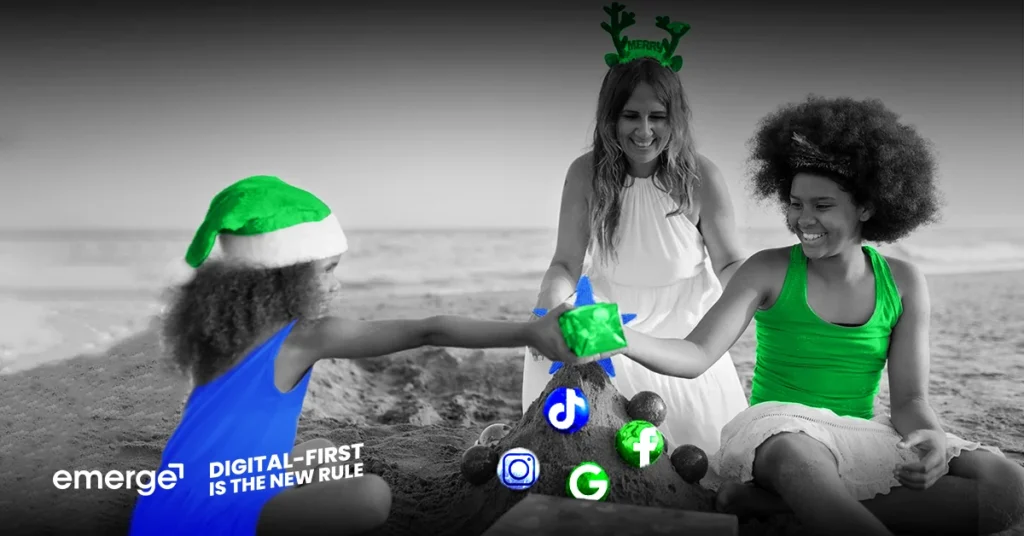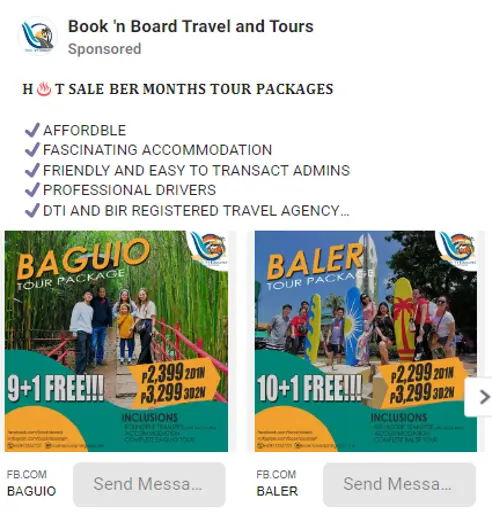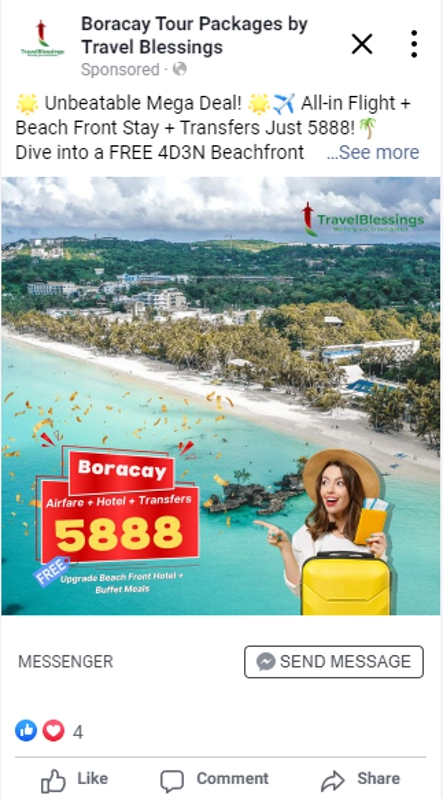
‘Tis the season for travel agencies to unveil their most captivating vacation packages and alluring destinations. However, amidst the excitement, it’s crucial to ensure that your ad campaigns set sail without any hiccups.
Rejected ads can be a major setback, but with the right strategies in place, you can navigate through the holidays with ease.
Here are some essential tips to keep in mind:
Understand Platform Policies
Familiarize yourself with the specific ad policies of the platforms you’re using. Different platforms may have varying requirements, and staying compliant is vital to a successful campaign.
Facebook’s Common Reasons for Ad Rejection
These are the primary culprits for ad rejections.
Prevents you from misleading users about an ad’s capabilities. For instance, using a play button in a static image or implying interactive elements that don’t exist is prohibited.
Facebook prohibits implying knowledge of specific user attributes like age, gender, sexual orientation, beliefs, or medical issues in ad copy or images. Avoid using “you” / “yours” in ways that imply such knowledge.
Google’s Common Reasons for Ad Rejection
Your ad’s text format may not align with Google Ads policies. To ensure compliance, remember the following guidelines:
When your URL is either incorrect or missing, Google Ads may restrict your ad’s visibility to a wider audience.
To prevent this, ensure that the destination and display URLs align with your root domain. This quick adjustment provides a simple solution to a potentially frustrating situation.
Each ad in Google Ads undergoes a thorough evaluation to ensure it adheres to established guidelines. This standard review process may occasionally extend over several days.
Once approved, Google will label them as “eligible.” If you haven’t received any notifications and it’s only been a day, it’s advisable to wait another day or two, as it could simply be a delay in the review process.
Including another company’s branded keywords in your ad may result in a flagging. To navigate this, it’s advisable to focus on using synonyms and aim for originality. If you’re uncertain about your choice of keywords, take a moment to personally review them before finalizing and submitting your ad.
Google Ads strictly prohibits the promotion or sale of counterfeit goods. These fraudulent items may feature logos or trademarks that are virtually identical to legitimate ones, a violation of Google Ads policy.
For healthcare-related advertisements, it’s imperative that your website include clear and appropriate disclaimers for all products, ensuring compliance with Google’s healthcare advertising policies and legal requirements.
Additionally, be mindful that Google restricts certain types of adult content ads in specific locations and does not endorse content promoting dishonest activities like hacking services or software.
If there are discrepancies in your billing account information, this could be the cause of your ad being disapproved. Google will withhold ads from its network if any billing issues are detected, so it’s crucial to provide accurate information.
Furthermore, it’s advisable not to submit all your ads simultaneously. Start with your best-performing ones, get them approved, and then proceed with the rest. This approach ensures a smoother process.
Tailor Content to Your Audience

Craft ad content that resonates with your target audience.
For example, if you’re targeting adventure travelers, focus on content that highlights thrilling experiences and daring destinations.
If your audience consists of luxury travelers, emphasize exclusive experiences, high-end accommodations, and personalized services.
For instance, you might highlight safety measures, transparent pricing, or flexible booking options.
For a family-oriented audience, a warm and friendly tone may be more effective. On the other hand, a corporate audience might respond better to a professional and concise tone.
For example, those with similar demographics or travel preferences can build trust and resonate with your target audience.
For example, for a beach holiday, showcase stunning beachfront views and vibrant sunsets.
This could include using the recipient’s name in email marketing or tailoring content based on their previous interactions with your brand.
Utilize High-Quality Images

In the travel industry, the impact of visuals cannot be overstated. They serve as the gateway to enticing potential travelers and conveying the essence of a destination. Using high-resolution images is paramount, as they capture the intricate details, vibrant colors, and breathtaking landscapes that make a location truly special.
These images should be more than just pictures; they should be an immersive experience, allowing viewers to feel the sand between their toes or sense the crisp mountain air. High-resolution photos bring out the nuances of a place, painting a vivid picture in the minds of potential travelers.
Highlight Unique Selling Points (USPs)


In the competitive landscape of the travel industry, setting your agency apart is not just a matter of preference; it’s a strategic imperative. Here’s why:
A/B Test


This iterative process involves systematically trying out various combinations of these elements. For example, you might test different headlines with specific visuals or pair them with different CTAs. The goal is to observe which combinations resulted in the highest click-through rates, conversions, or other key performance indicators.
Make sure your Ad is Mobile Optimized
With a significant portion of users browsing on mobile devices, it’s vital that your ads are mobile-friendly. Neglecting this aspect can lead to lower engagement rates, as users may face issues like slow loading times or distorted visuals.
Additionally, search engines and social media platforms prioritize mobile-friendly content, potentially impacting the visibility of your ads. Therefore, optimizing ads for mobile devices is crucial for a successful advertising campaign.
Don’t forget to Monitor and Adjust
After launching a campaign, it’s crucial not to adopt a “set it and forget it” mentality. The initial phase of a campaign is just the beginning. Once your ads are live, it’s imperative to actively track and assess their performance. This involves closely monitoring key metrics, analyzing user behavior, and evaluating the overall effectiveness of your campaign strategy.
Real-time data provides invaluable insights into how your campaign is resonating with your target audience. This data is like a compass, guiding you toward understanding what’s working and what may need adjustment.
Being attentive to real-time data allows you to identify trends, spot opportunities for optimization, and address any potential challenges promptly. For instance, if you notice a particular ad variation is generating significantly higher click-through rates than others, you may choose to allocate more budget to that specific variant to maximize its impact.
Key takeaways
By keeping these tips in mind, you’ll be well-prepared to steer your holiday ad campaigns in the right direction. Smooth sailing through the holidays not only ensures a positive experience for your audience but also leads to better results and ROI for your travel agency.
If you need more help understanding digital marketing or where to start on the digital-first approach to running ads online for your business, consult with an expert today! Click here: https://www.emerge.com.ph/contact/





